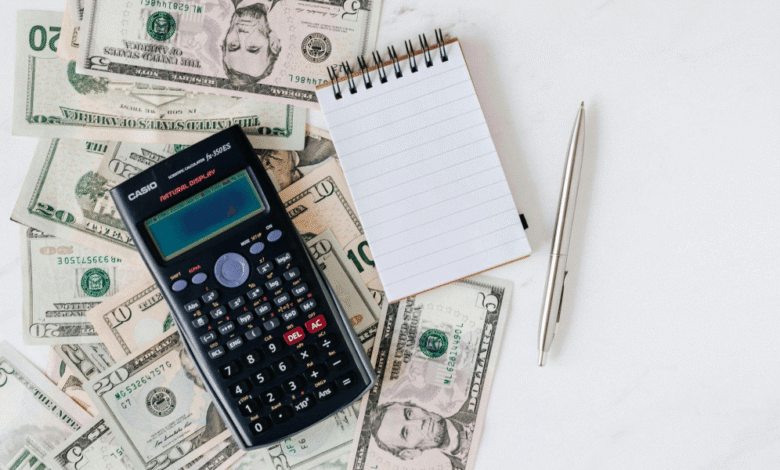5 Financial Habits Every 20-Something Should Build

Adulting hits fast. One moment you’re celebrating your first paycheck, and the next you’re trying to figure out rent, groceries, and taxes. Managing money might not sound exciting, but learning how to handle it early can save you from a lot of stress later.
Your twenties are the perfect time to set the foundation for financial independence. You don’t need to know everything about investing or retirement right now. What matters most is building a few steady habits that make life easier and help you feel in control. Here are five practical money habits every twenty-something should start today.
1. Start Saving for the Unexpected
Life is full of surprises. A flat tire, a sudden dental bill, or even a lost job can mess with your plans. Having some money set aside for these situations helps you stay calm and focused when they happen. You don’t need a huge amount to get started. Even saving a few dollars from each paycheck adds up.
Think of it as creating your own safety cushion. Many experts suggest saving enough to cover three to six months of expenses, but that can take time. Begin small. Aim for your first $500 or $1,000 and build from there.
It helps to learn a bit about emergency fund basics before diving in. This means keeping the money in an easy-to-reach savings account, not in your checking account or an investment that fluctuates. It’s there to protect you when life doesn’t go as planned, not to earn high returns. Understanding how an emergency fund works can keep you from using credit cards or loans during tough times.
Once you know where to put the money, make it automatic. Set up recurring transfers from checking to savings right after payday. That way, saving becomes part of your routine, not something you have to remember each month.
2. Track Your Spending Like a Pro
Most people don’t realize how much they spend until they actually look. Tracking your spending shows you where your money goes and helps you spot habits that hold you back. Maybe you’re spending more than you thought on delivery or streaming services. That’s normal. The goal isn’t to feel guilty, but to stay aware.
You can use a budgeting app, your bank’s spending tracker, or even a simple spreadsheet. The method doesn’t matter as much as the habit itself. Review your spending weekly, not just once a month. Weekly check-ins help you adjust faster before things get off track.
When you understand your spending, you’ll know exactly how much you can save or invest. You’ll also feel more confident making decisions about bigger purchases.
3. Build Credit the Smart Way
Your credit score might not seem important until you need it. It affects whether you can rent an apartment, buy a car, or even land certain jobs. The good news is you can start building credit responsibly right now.
If you don’t have a credit card yet, consider a secured card or one with a low limit. Use it for small purchases like groceries or gas, and pay it off in full each month. That shows lenders you can handle debt responsibly.
Avoid maxing out your card or missing payments. Those mistakes can hurt your score and take time to fix. A good rule of thumb is to keep your credit use under 30 percent of your available limit.
Check your credit report once or twice a year to make sure everything looks right. You can do this for free through major credit bureaus.
4. Set Realistic Financial Goals
Saving and budgeting are great, but without goals, it’s easy to lose motivation. Setting clear financial goals gives you direction and purpose. Start by asking yourself what you want to achieve in the next few years. Maybe it’s paying off student loans, saving for travel, or buying your first car.
Write your goals down and make them specific. “Save more money” is vague. “Save $200 a month toward a vacation” is clear. When you can measure your progress, you stay encouraged.
Break big goals into smaller steps. If you want to save $5,000 for a trip, divide it into monthly or even weekly targets. Celebrate the small wins along the way. Seeing progress keeps you going.
5. Learn to Budget Without Feeling Restricted
A budget isn’t meant to limit you. It’s a plan that helps you make your money work better for your lifestyle. Think of it as a way to make choices that fit your goals instead of reacting to every expense.
Start with a simple structure like the 50/30/20 rule. Spend 50 percent of your income on needs, 30 percent on wants, and 20 percent on savings or debt payments. This approach keeps things balanced and realistic.
Use a system that fits your personality. Some people love tracking every dollar, while others prefer rough categories. There’s no single right way to budget. The best budget is the one you’ll actually use.
Don’t forget to include fun money. Allowing yourself to enjoy life keeps your budget sustainable. If you cut out everything you love, you’ll quit after a month. The point is to stay consistent, not perfect.
Building good financial habits doesn’t happen overnight. It’s okay if you don’t have everything figured out right away. What matters is starting small and sticking with it. These five habits are simple, but they make a huge difference over time.
The sooner you start, the easier it becomes. Even small efforts compound into real progress. So the next time you get paid, take a few minutes to look at where your money goes, set up an automatic transfer, or check your credit score.
Every step counts. Learning to manage your money now is one of the smartest forms of adulting you can do. You’ll feel more prepared, less stressed, and ready for whatever comes next.





